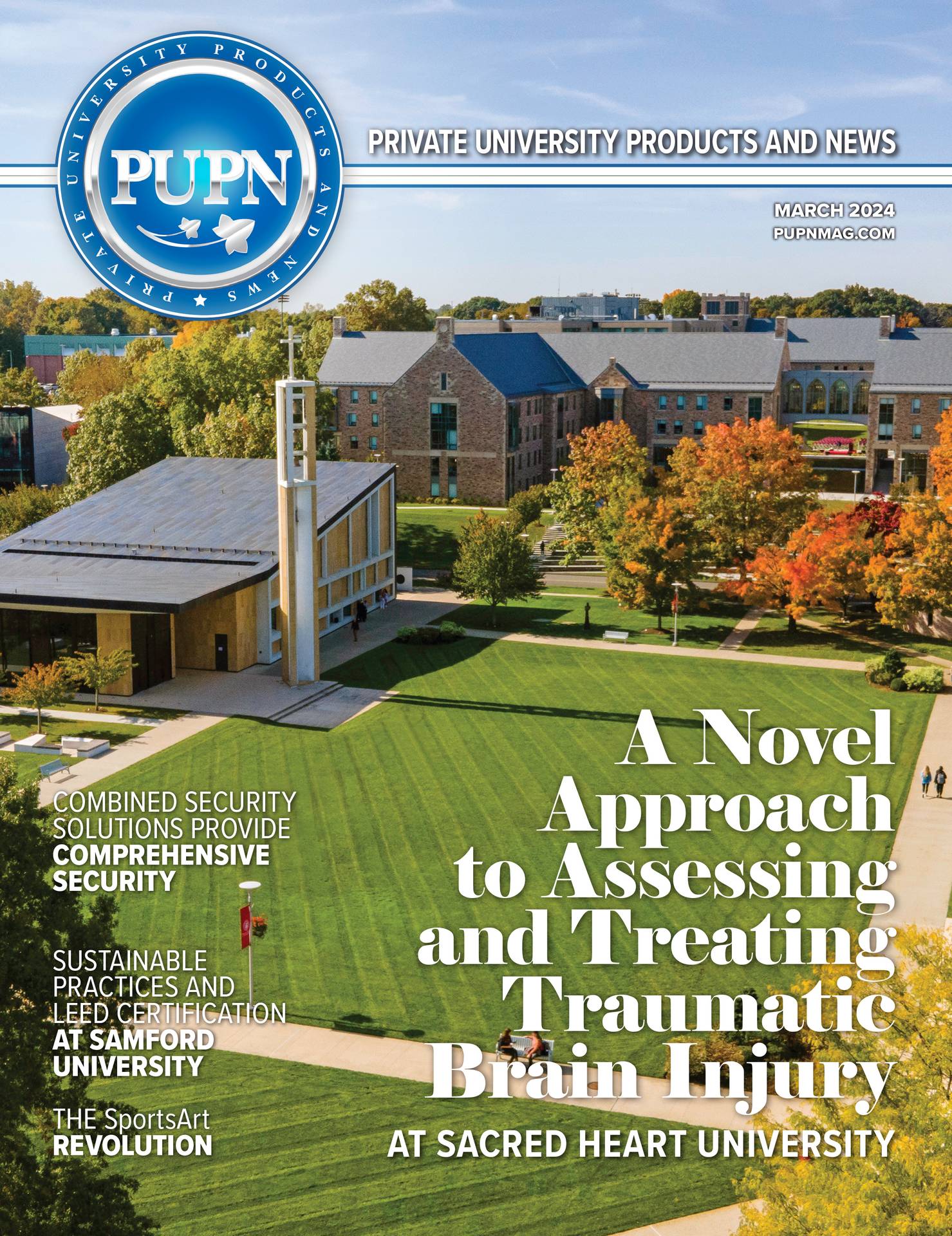Though I was by no means an athlete, I always found a sense of calmness in the rec center. It was a place where I could completely zone out for an hour, focus on myself, and hit my metaphysical “reset” button before returning to the library to delve into a plethora of cognitive psych articles.
Going to the rec center offered a window of time where I could temporarily pause my academic obligations and check in with myself; this hour or two a week always helped me find balance and stillness in an otherwise hectic schedule. At Vanderbilt, their recreation center strives to provide an optimal experience for their students. Everyone from athletes to couch potatoes can find something they enjoy, because Vanderbilt’s rec center takes a holistic approach to wellness.
The Facilities
Kenny Moore, Director of Daily Operations, Strategic Planning, and Student Management for Vanderbilt’s recreation department, noted how Vanderbilt’s rec center is taking a holistic approach to what it means to be healthy. The center explores all the different aspects of fitness, nutrition, and wellness, and combines them into one location.
Moore explains how the rec center likes to maintain a fluid, module concept in their spaces, therefore making it possible for the center to go beyond the boundaries of what a rec center has traditionally been used for in the past. Vanderbilt is also embracing change and incorporating new technology in the rec center.
For example, previously, the outdoor facilities would require someone to use multiple keys to unlock multiple boxes; now, everything runs on a single, secure phone app, which makes prepping the outdoor facilities much easier.
The rec center is also utilizing new software technologies in their turnstiles, and providing iPads to employees for them to record and diagnose issues with malfunctioning equipment. In addition to staying up-to-date with a tech-savvy center, Vanderbilt is also making physical adjustments to make the rec center more accessible and comfortable for all their students.
One recent change includes adding a lift to the indoor climbing wall, so that it can meet Americans with Disability Act (ADA) standards. This lift also makes it easier for ADA students and faculty to access the racket ball courts on the lower levels of the center.
Other adjustments are not just physical, but also social. The center recently made the shift to all-gender bathrooms, in an attempt to make sure all their students feel welcomed, and are aware that the rec center is a safe space for anyone. As mentioned in PUPN’s recent Aquatics issue, Vanderbilt hosts a women’s only swim time once a month, at the request of their students.
Moore explained the college is always open to hear suggestions by students, because the rec center aspires to be a place where everyone feels secure and supported.
Indoor Fitness Options
Not surprisingly, Vanderbilt’s rec center has a multitude of fitness options. Some of the facility’s options include the following: a four-lane bowling alley, a climbing wall, an indoor swimming pool, ellipticals, basketball courts, indoor and outdoor kayaking, lacrosse, squash, treadmills, indoor football, and a 300-meter, 8-lane, indoor running track.
Moore explained that due to the unpredictable nature of Tennessee weather, the center has developed many indoor options.
What’s the point of having a beautiful pool, track, and field if the weather prohibits students from wanting to use them? The multitude of classes and equipment help ensure that there is something for virtually all students to enjoy.
Nutrition and The Teaching Kitchen
As we all know, what people put into their bodies is as important as (if not more important than) the exercise they do. This is why Marilyn Holmes, the Associate Director of Wellness and Fitness, offers workshops for students where they can discuss topics such as pre- and post-workout foods, healthier snack ideas, eating on the road, supplement use, and maximizing calories on a campus meal plan.
Holmes, who is a registered dietitian at the rec center- along with Vanderbilt dietetic interns-facilitates counseling sessions regarding topics such as weight loss, weight gain, sports nutrition, maintaining energy, meal planning, dining out, vegetarian/vegan diet options, and healthy eating and cooking.
Cooking can be a daunting task for anyone, and college students learning to live a fully autonomous, self-effective life for the first time, may be particularly vulnerable to falling into unhealthy eating habits. This is why the rec center also offers Vandy Cooks classes. Vandy Cooks are healthy cooking demonstrations held in the teaching kitchen and are completely free for students. The demos are led by Vanderbilt’s chefs, registered dietitians, and expert guests.
The rec center celebrates and promotes healthy eating in these demos by teaching students skills and providing them with recipes and nutrition analysis at each session. The Teaching Kitchen was launched in 2016, and is jointly led by The Culinary Institute of America and Harvard T.H. Chan School of Public Health in the Department of Nutrition.
The Teaching Kitchen Collaborative (TKC) facilities aim to be a catalyst of enhanced personal and public health across all community settings. The goal of the Teaching Kitchen is to equip participants with the fundamentals of cooking, apply evidence-based nutrition information to real life situations, and promote a sense of opportunity and excitement when it comes to cooking.
In looking over some of the Teaching Kitchen’s previous menu items, it is clear Vanderbilt also aims to expand palates and include multicultural food options. The curriculum has recently included dishes such as Thai green curry chicken, grilled sirloin crostini with wasabi cream, and spring rolls-all of which are a far cry from the Ramen noodles and fast food that often serve as the base of a college student’s diet.
Mindfulness and Relaxation
One upcoming renovation for Vanderbilt is a plan to promote wellness via their environment. The rec center is planning on having a custom-built aquarium installed in one of the walls at the front entrance of the rec center. Moore believes this piece will help promote a sense of meditation and relaxation for those using the rec center.
Another way Vanderbilt has promoted wellness and relaxation is through mindfulness classes, such as yoga and meditation. Furthermore, Vanderbilt realizes that wellness extends beyond the rec center. This is why the college also sponsors team-building outdoor trips.
Moore explains, Vanderbilt has a “constant push for wellness overall.” This is why, last month, the center gave a group of students the opportunity to take a six-mile kayaking adventure down the Piney River.
Catching a Break
Vanderbilt has an incredible academic reputation, and the students there are among the most dedicated in the country. For this very reason, Moore stated he wants the rec center to be a place where the students can really let loose and have some fun between papers and classes.
At the rec center, the students tend to utilize three aspects the most-the first being general, informal play; this includes both organized and unorganized team sports, such as pick-up basketball or a few rounds of bowling. Secondly comes hosting events, such as student organizations, dance practice and recitals, or multicultural meetings. Finally, and most obviously, the students and faculty go there for the gym.
The center offers sixty group classes a semester, and the center has a designated room for those interested in powerlifting. By offering an assortment of health and wellness opportunities, the students are more prepared to find balance in their lives-something the Vanderbilt rec center aims to instill in their students.










